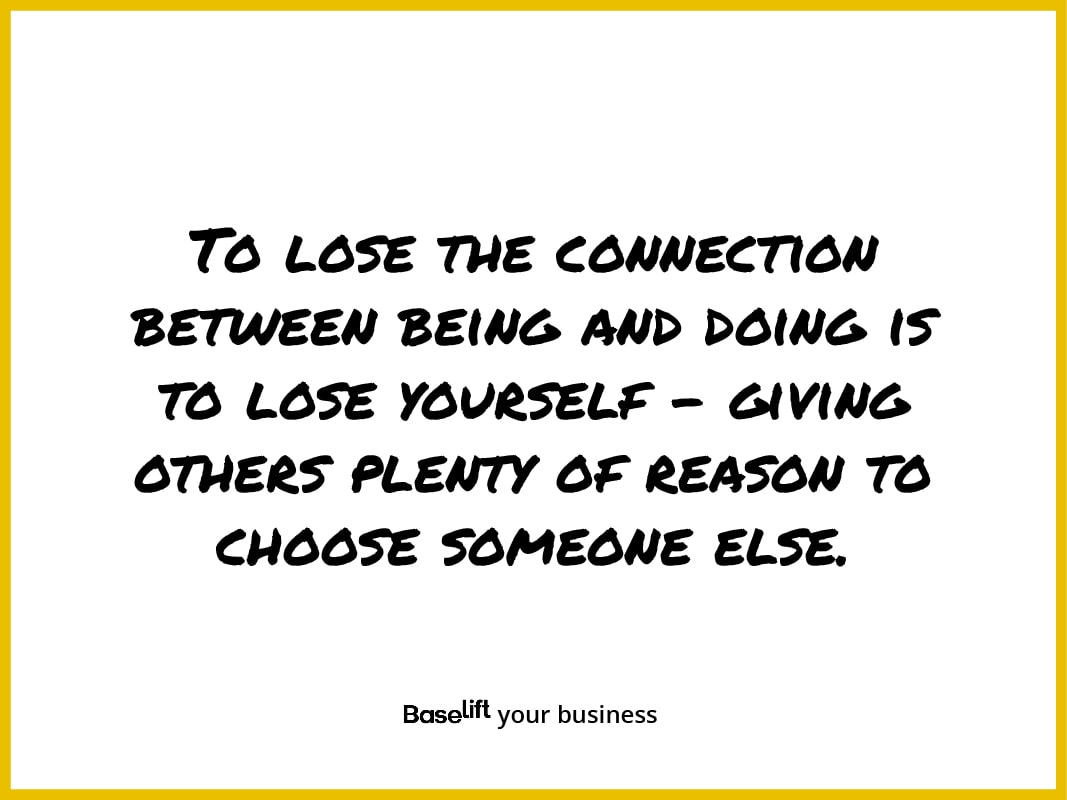No Identitiy, No Success
Many people are unhappy and unsuccessful because they keep doing things that do not match their self-image – they act against their values and beliefs. The same applies to companies.

It’s time to align the doing with the being
The inner tension between doing and being is called cognitive dissonance. It not only leads to dissatisfaction but is often the reason why people fail to achieve their goals.
People who are in conflict with themselves unconsciously sabotage their success because they often hold back the special qualities and unique perspectives that could set them apart and make a lasting impact on others.
One of the main causes of cognitive dissonance is a lack of engagement with one’s personal identity.
If we do not engage with our identity, we have little choice but to imitate external models – to do what everyone else does. The result: Time, energy and talents go into things that neither fulfil us nor set us apart from what we do not want to be part of.
We find ourselves in a race that we cannot win and that brings us no joy.
Whether consciously or unconsciously, ignorance of our identity prevents us from realising our full potential.
The same applies to companies. A lack of business success is often due to a dissonance between being and doing. Many companies focus almost exclusively on how they can work efficiently and productively. But the crucial question – „Is this the right way FOR US?“ – is often unanswered.
When companies focus solely on „doing“ without first addressing who they are, it fosters strategic dissonance – a situation in which a company’s chosen strategy fails to gain traction.
The lack of a functioning self-image and the failure to act on it prevent, on the one hand, a special positioning in the market and, on the other hand, employees from developing a relationship with the company that goes beyond the exchange of labour and money.
In short, just as a lack of engagement with one’s own identity leads to dissatisfaction among individuals and a failure to leverage their unique qualities and perspectives, the absence of a clear corporate identity leads to dissatisfied employees, unoriginal solutions and a lack of market differentiation.


